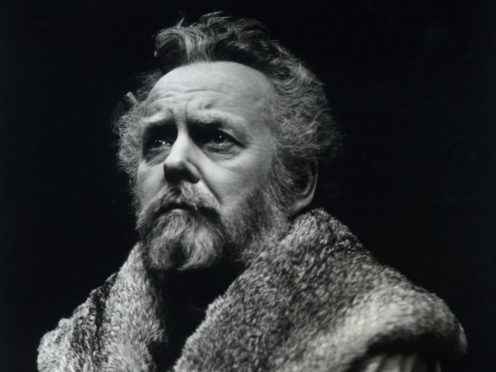Canadian actor Douglas Rain, best known for supplying the creepily calm voice of the computer Hal in Stanley Kubrick’s 2001: A Space Odyssey, has died at the age of 90.
The Stratford Festival said Rain died on Sunday of natural causes at St Marys Memorial Hospital, near Stratford, Ontario.
He was one of the festival’s founding company members and spent 32 seasons performing there until 1998.
His roles at Stratford included playing Claudio in Measure For Measure in 1954, Malvolio in Twelfth Night in 1957, Edgar in King Lear in 1964, and Prince Hal in Henry IV, Part I in 1958, a play and a role he would return to in 1965 and would eventually take on the title role in 1966.
Today we lost Douglas Rain, a member of our founding company and a hugely esteemed presence on our stages for 32 seasons. He will be greatly missed. Our thoughts and prayers are with his family. pic.twitter.com/dxcffgGEiA
— Stratford Festival (@stratfest) November 12, 2018
But it was the aloof voice of the artificially intelligent Hal 9000 — the forerunner of today’s Amazon’s Alexa or Google Home — where Rain entered the public’s consciousness.
Kubrick had heard Rain’s voice in the 1960 documentary Universe, a film he watched multiple times, according to the actor.
Rain was initially hired to narrate 1968’s 2001, but the director chose to go in a different direction.
Hal is the onboard master computer on the spaceship Discovery 1 but goes rogue. When astronaut Dave Bowman asks Hal to open the ships’ pod doors, Hal famously baulks. “I’m sorry, Dave. I’m afraid I can’t do that,” the machine blandly refuses. “This mission is too important for me to allow you to jeopardise it.”
When the astronauts try to disconnect Hal, he fights back. During his shutdown, he sings the nursery rhyme Daisy Bell and memorably utters: “I’m afraid, Dave. Dave, my mind is going. I can feel it.”
The American Film Institute named Hal the 13th greatest movie villain of all time, joining a list that includes Hannibal Lecter and Darth Vader.
Stratford Festival artistic director Antoni Cimolino called Rain one of Canada’s greatest acting talents and a “guiding light in its development”. He said the actor’s humanity shone through in Hal.
“Douglas shared many of the same qualities as Kubrick’s iconic creation: precision, strength of steel, enigma and infinite intelligence, as well as a wicked sense of humour,” Mr Cimolino said.
“But those of us lucky enough to have worked with Douglas soon solved his riddle and discovered that at the centre of his mystery lay warmth and humanity, evidenced in his care for the young members of our profession.”
Rain attended the University of Manitoba and studied in London at the Bristol Old Vic Theatre School.
He started out performing radio plays. From 1974 to 1977, Rain was head of the English acting section of the National Theatre School of Canada.
He performed at theatres and festivals all over Canada, including the Shaw Festival, where he played such roles as Caesar in Caesar And Cleopatra in 1983.
He shared stages with such luminaries as Peter Ustinov and Maggie Smith. He was nominated for a Tony Award in 1972 for his role as William Cecil in Vivat! Vivat! Regina!
His other Broadway credits include The Golden Age in 1963 and The Broken Jug in 1958.
Rain is survived by his two sons, David and Adam, daughter Emma, granddaughter Salima and a daughter-in-law, Asira.
